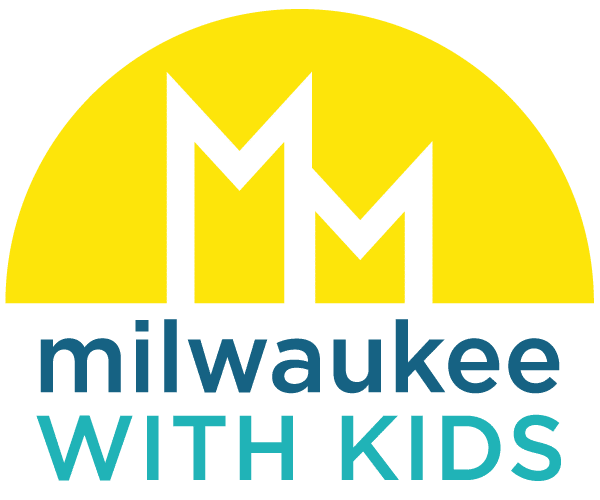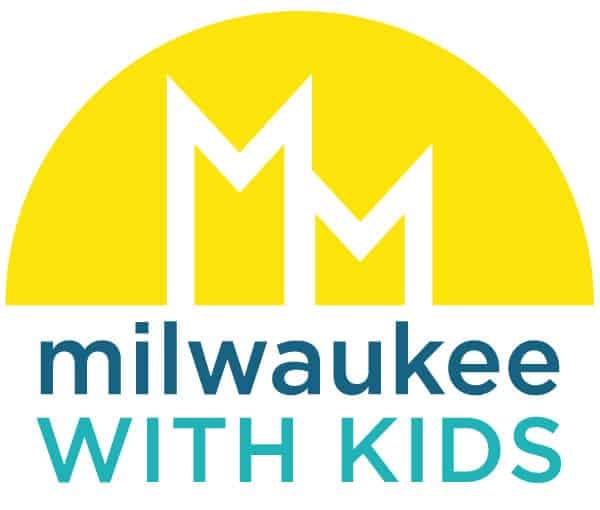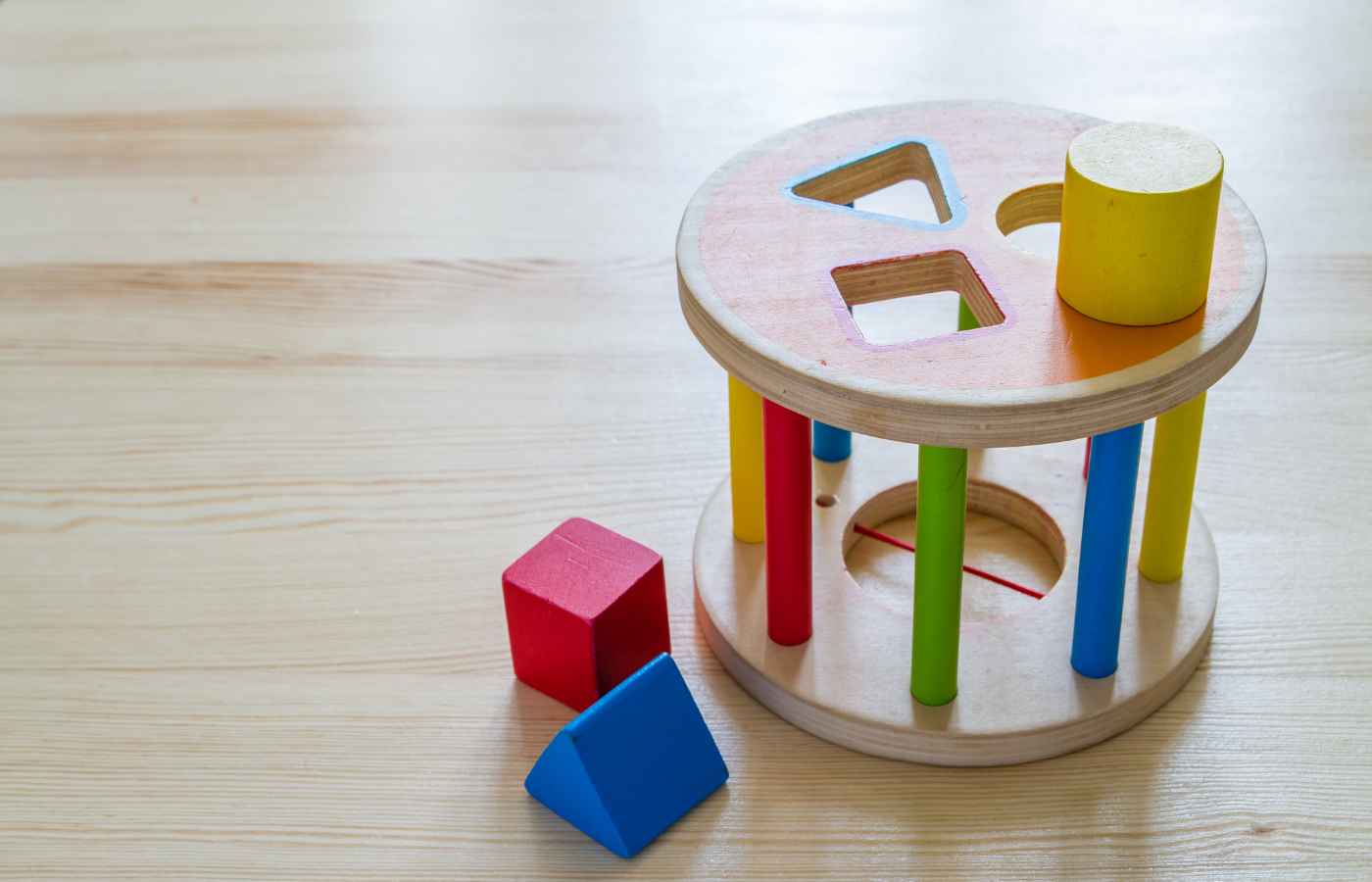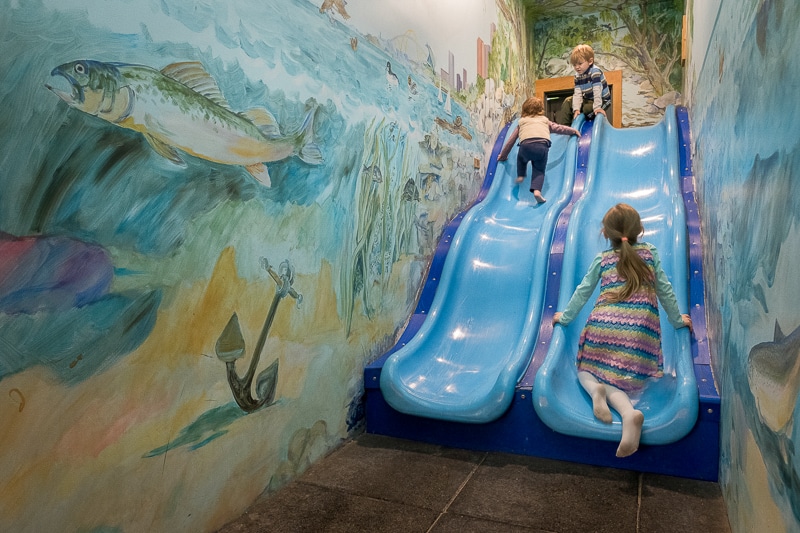If you’ve found yourself here, you’re probably knee-deep in the delightful but sometimes perplexing toddler phase.
Your 17-month-old is exploring the world like never before, and you’re searching for age-appropriate activities to keep them engaged and growing. Well, you’re in the right place!
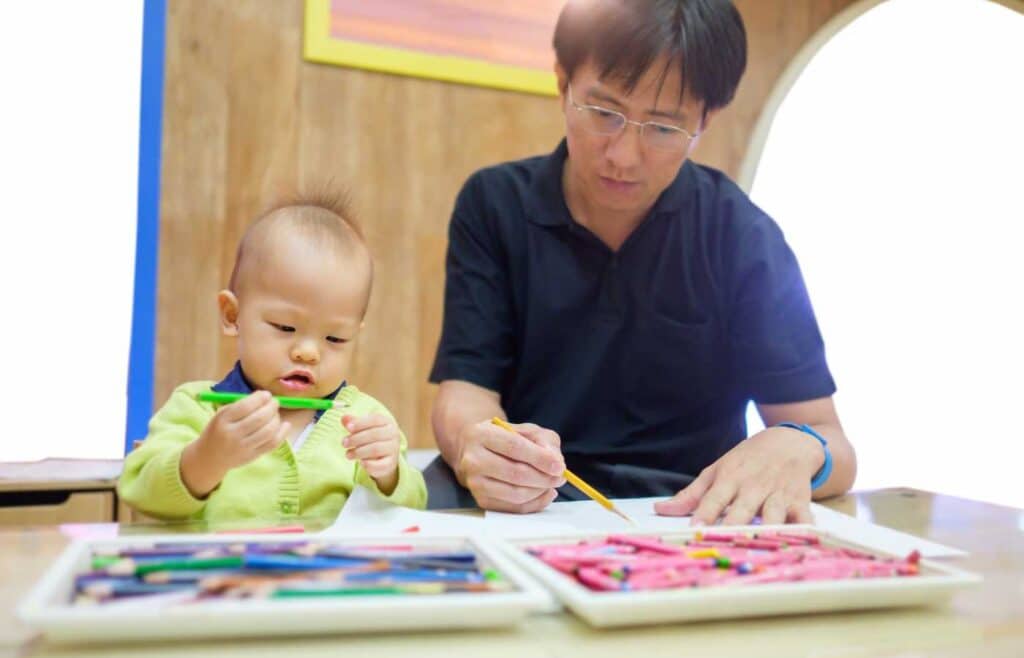
I’m Calie, your go-to gal for all things parenting. If you’re also looking for ways to add a little more joy and creativity to your parenting journey, check out How to be a fun mom for inspiration.
As a mom of three and someone who has spent two glorious decades as a teacher and camp counselor, I’ve got the activity planning down to a T for kids of all ages.
So, let’s get down to it, shall we?
1. Water Table Fun
Let’s start with a classic: the water table.
It’s a great way to introduce sensory play while also fostering hand-eye coordination. Fill your shallow table or bucket up with water, and add some small toys, plastic balls, or even ice cubes.
You’ll be amazed to see how much fun your 17-month-old will have splashing around. It’s an engaging activity that can keep them busy for a long time, especially during those hot summer days.
2. Building with Blocks
Nothing beats the simplicity of stacking blocks. This is a fantastic indoor activity that not only helps develop fine motor skills but also taps into your little one’s cognitive skills.
You can use wooden blocks or even soft, plush ones. Encourage your toddler to build towers, bridges, or whatever their imagination conjures up!
3. Playing with Pom Poms
Got some pom poms lying around? These fluffy small toys are fabulous for practicing fine motor skills. You can place them in a sensory bin or even a cardboard box, and let your child pick them up, sort them by different colors, or push them through small holes.
It’s a low-maintenance yet highly rewarding activity.
4. Blow Bubbles
This simple activity never gets old. Chasing and popping bubbles help improve hand-eye coordination and are just plain fun.
Even better? Get a small bubble machine that will keep the fun going for hours.
5. Shape Sorters
Shape Sorters are fantastic for enhancing a toddler’s problem-solving and motor skills. Essentially, they consist of a box with various holes cut out to match specific shapes—like a circle, square, triangle, etc.—and your child has to figure out which shape fits where.
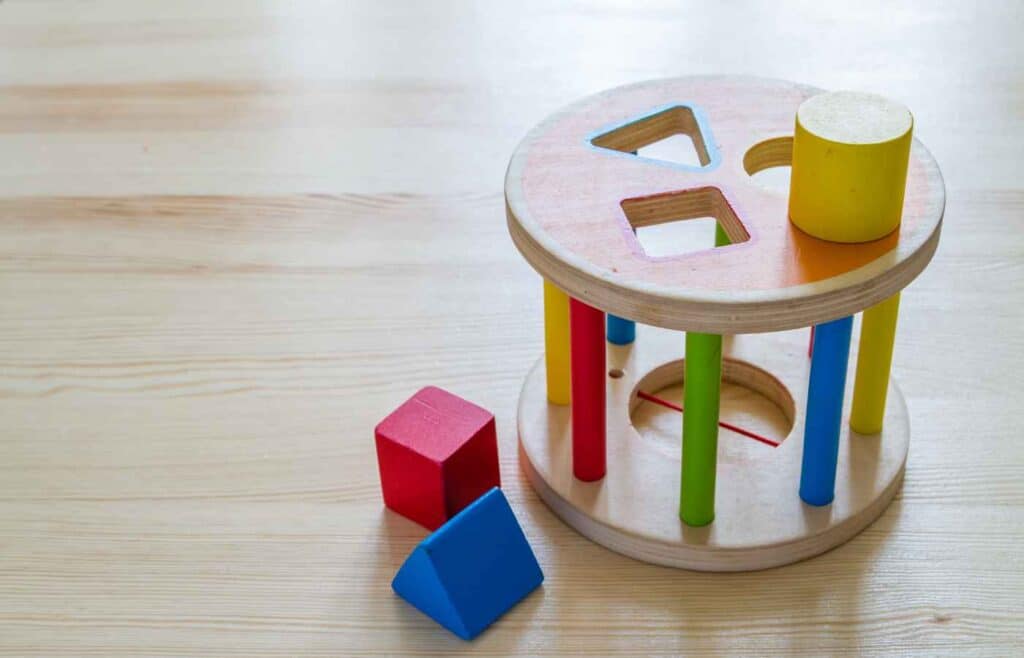
- Basic Plastic Shape Sorters: The kind where you match the shape to the hole and pop it in.
- Advanced Sorters: Some sorters have different layers or multiple sides, offering a bit more of a challenge.
- DIY Sorters: You can make your own with a cardboard box and some cutout shapes.
- Themed Sorters: These days, you can find shape sorters that are also cars, animals, or part of a larger playset.
6. Sticker Fun
Toddlers love stickers. Get a big sticker book from the store and help them remove and place them on paper, or even on their hands and feet to teach body parts and be silly.
7. Start Biking!
Hop on a balance bike and let them glide around the driveway! The low center of gravity makes it easy for one year olds to balance and glide on their own.
8. Ball Pit Dive
You don’t need a fancy setup to create a ball pit at home. A kiddie pool or a large cardboard box filled with plastic balls can be a fun, safe space for your little one.
Ball pits are excellent for gross motor skills as your child can crawl, walk, or dive in. Plus, it’s just plain fun!
9. Simple Puzzles
Simple puzzles are amazing for cognitive development and problem-solving skills. Start with larger pieces and simpler images. As your toddler gets the hang of it, you can introduce more complex puzzles for an added challenge.
10. Toddler Trampoline
Nothing will get their energy out quite like a toddler trampoline, perfect for indoor or outdoor use. These are smaller than the large trampolines you see in people’s yards, so they can fit easily in your play room or living room.
11. Cardboard Box Playhouse
Here’s where a simple cardboard box becomes a world of its own. Encourage imaginative play by turning the box into a playhouse, a car, or even a spaceship.
You can decorate it together with your child using markers, stickers, or paint. This activity is sure to provide quality time and a whole lot of laughs.
12. Wooden Spoon Drumming
You don’t need fancy musical instruments to create a band at home. Grab some wooden spoons and use them as drumsticks against pots and pans.
This simple activity is a great way to develop hand-eye coordination and introduce your child to the world of music. And who knows, you might have a little drummer on your hands!
13. Wagon Rides
What kid doesn’t like a ride in a wagon? Stroll around your local park or neighborhood and wave hello to passersby. Pack a picnic if you like, and a speaker for music to really level up your walk.
14. Dance Party
Music has the magical ability to make almost anyone move. For young toddlers, a dance party can serve as a fun way to improve their gross motor skills. Just put on some nursery rhymes or favorite tunes and let them shake it off.
It’s a fantastic method for burning off some of that endless energy.
15. Cleaning
Toddlers love to mimic. Give them a small broom or cloth and let them “help” you.
16. Sidewalk Chalk Art
Outdoor play has never been more colorful. Grab some sidewalk chalk and head outside to your driveway or the local park. This is a fun way to encourage your little artist’s creativity while also working on their fine motor skills.
Plus, it’s an easy cleanup; just wait for the next rain!
17. Food Coloring Science
A good idea for a quick and simple activity that teaches cause and effect is to play with food coloring. Fill a few cups with water, add drops of different colors, and let your little one stir and mix.
Not only does this introduce new words like the names of different colors, but it’s also a visual treat.
18. Finger Painting
Art doesn’t have to be neat! Finger painting is a sensory play idea that provides different textures and a creative way to express oneself.
Spread out some construction paper and let your child’s imagination take the wheel. It’s a fantastic indoor activity, especially for a rainy day.
19. Instrument Time
Music is a powerful tool for development. It can help with language, rhythm, and even math skills down the road. At 17 months, your kiddo might not be ready for a full-on drum set, but there are simpler instruments that can do the trick.
- Shakers: Fill an empty water bottle with rice or beans, and seal it tightly. Your toddler can shake it to their heart’s content!
- Handbells: These are bells with a handle, and they are pretty easy for little hands to grip.
- Drumming: You don’t need an actual drum. Pots, pans, and wooden spoons can serve the same purpose.
- Xylophone: A baby xylophone is colorful and engaging, plus it gives them a chance to connect hitting a note with making a sound.
- Homemade Guitar: Rubber bands wrapped around an open box can make for a fun string instrument.
20. Playdough Shapes
Playdough is a classic, offering opportunities for both fine motor and language skills development. You can make shapes, letters, or just let them squish and pound to their heart’s content.
Describe what you’re doing to incorporate some language development—talk about the colors you’re using, the shapes you’re making, and so on.
21. Nursery Rhymes Singalong
Language development can be fun with a nursery rhymes singalong! The repetition of words in songs like “Old MacDonald” or “The Wheels on the Bus” helps with memory and vocabulary. Plus, it’s a great activity for a family singalong, making it a fun way to spend quality time together.
22. Reading Tent
Sometimes a change of scenery can make a world of difference. Create a little reading nook or tent with blankets, making it an exciting indoor activity that turns reading into an adventure.
23. Dress-Up Time
Pull out some old clothes, hats, and accessories and let your toddler’s imagination run wild. Dress-up isn’t just fun; it’s also an exercise in physical development as your child figures out the complexities of buttons, zippers, and shoelaces. Plus, role-playing can be a beautiful way for them to make sense of the world around them.
24. Cooking
Stirring, pouring, and watching you cook can be fascinating for them!
25. Sensory Bin Dig
This is one of the best activities to engage your child in imaginative play using household items. Fill a bin with rice, beans, or sand and hide small toys or objects for them to find.
Add scoops, shovels, or even just their own hands for digging. It’s like a treasure hunt they can do over and over again.
26. Grocery Store Helper
Next time you’re at the grocery store, why not turn it into an educational outing? Your 17-month-old can help pick out fruits, veggies, and other items, practicing both social skills and language development.
Saying names of items out loud can also help your toddler pick up new words, making grocery shopping a win-win for everyone.
27. Local Park or Playground
Head to your local park for some outdoor play in the fresh air. Let them climb, swing, dig, and run!
28. Ice Cube Painting
This is a fun activity and a cool sensory play idea, literally! Fill an ice cube tray with water mixed with food coloring, plus one popsicle stick.
Once frozen, pop those colorful cubes out and let your toddler paint on a piece of paper. It’s a bit messy, but the tactile and visual stimulation makes it totally worth it.
29. Egg Hunt in the Yard
Who says egg hunts are only for Easter? Fill some plastic eggs with small toys or treats and hide them around your yard. This is not just a fun activity, but it’s also a great sensory game that gets those little legs moving, aiding in physical development.
30. Read Their Favorite Book
Reading is always a good idea when it comes to language skills and cognitive development. Pick their favorite book and settle in for some quality time. Use funny voices for different characters to make it more engaging. The more fun you make it, the more they’ll love reading time.
31. Pot and Pan Band
Turn your kitchen into a music studio. Pull out some pots and pans and give your little one a wooden spoon for a drumstick. It’s a noisy but fun activity that allows them to explore sound and rhythm, while also being just plain fun. Don’t forget the earplugs for yourself!
32. Simon Says
Last but not least, Simon Says is a game that’s perfect for teaching social skills and listening comprehension. Make the instructions as simple or as complex as appropriate for your toddler’s development. Whether it’s touching their nose or jumping, it’s a great game that tests their ability to listen and react.
33. Shaving Cream Art
Introduce your little one to different textures and a whole new level of sensory play with shaving cream art. Just spread some shaving cream on a surface and let them doodle away with their fingers or brushes. Add some food coloring for extra pizzazz. It’s a creative way to explore touch and sight.
34. Crayon Art
An oldie but a goodie! Crayons are excellent for practicing fine motor skills. There are even giant crayons that are easier for toddlers to grip.
The colorful strokes not only allow your kid to explore different colors but also offer a tactile experience as they press down or make lighter strokes on paper. This simple activity can keep a toddler engaged for a surprisingly long time.
35. Sorting Plastic Balls
Colorful plastic balls aren’t just for ball pits. They’re also an awesome tool for teaching cognitive skills like sorting and color recognition. Make it a game: sort the balls by color into different buckets or containers. This can be as engaging for 18-month-old toddlers as it is educational.
36. Puppet Show
Encourage imaginative play and social skills with a simple puppet show. You can use store-bought puppets or make some from socks. Help your child move the puppets around and make them talk, boosting both creativity and language development. It’s a win-win!
37. Toy Cars Racing
A racetrack doesn’t have to be fancy; a simple line on the floor will do. Racing toy cars not only make for a fun game but also assist with physical development. As your toddler pushes the car faster or navigates around obstacles, they’re fine-tuning their hand-eye coordination.
38. Spoon and Egg Race
This game is perfect for developing gross motor skills and hand-eye coordination. Have your child try to balance a plastic egg on a spoon while walking. If you have more family members, turn it into a race. It’s a fun way to keep everyone entertained and physically active.
39. Rainy Day Indoor Obstacle Course
Don’t let bad weather keep you down. Create an indoor obstacle course using pillows, chairs, and other household items. This is a perfect indoor activity that helps develop physical skills like crawling, jumping, or balancing.
40. Tea Party with Stuffed Animals
Have a good old-fashioned tea party with a twist. Invite some stuffed animals to join in, helping your child practice social skills and engage in imaginative play. Pouring, sipping, and chatting with their fluffy friends can make for an afternoon well spent.
41. Toilet Paper Roll Crafts
Got empty toilet paper rolls? They make for a great recycling project that encourages creative play. Turn them into binoculars, rockets, or cute little animals. The possibilities are endless and the fun is guaranteed.
42. Leaf Collecting
Nothing like a good nature walk to get some sensory activities going. Collect leaves of different shapes, sizes, and colors. When you get home, you can sort them, count them, or even use them in art projects.
43. Keep it Up with a Balloon
This simple activity helps with hand-eye coordination and physical development. It’s easier to grab than a ball, making it perfect for younger hands.
44. Baking Together
Let your toddler help you measure ingredients and stir the batter. This fun activity helps with cognitive skills like counting and understanding quantities, all while making something delicious.
45. Visit the Zoo
A trip to the zoo offers a plethora of educational activities and is a great way to spend quality time as a family. Whether it’s learning animal names or understanding their habitats, the zoo is a treasure trove of knowledge.
46. Sandbox Treasure Hunt
Hide some small toys or objects in a sandbox and let your child dig them out. This is not only a great game but also good for gross motor skills.
47. Play Peekaboo
A classic but always a hit. Peekaboo helps with social skills and language development. Plus, it’s a game that can be played anywhere, anytime.
48. Kick a Ball Outside
Encourage outdoor play by simply kicking a ball back and forth. This activity helps with gross motor skills and provides a good energy outlet.
49. Indoor Camping
Why wait for good weather? Pitch a small tent inside and have an indoor camping adventure complete with stories and ‘smores (from the microwave!). It’s a creative way to have imaginative play indoors.
50. Make a Fort
Gather up some blankets and chairs and help your child build a fort. This offers a great way to engage in creative play using household items you already have.
51. Stringing Beads
A challenging but rewarding activity, stringing beads helps with fine motor skills and concentration. Make sure the beads are large enough to be safe for younger children.
52. Read and Act Out a Story
Choose one of your child’s favorite books and act it out as you read. This helps with comprehension and makes for a fun, interactive reading experience. It’s a simple activity but great for improving communication skills.
53. Fill-in-the-Blanks
As you read, stop before a key word in the story and let your child fill in the blank. This boosts their listening skills and helps them pay closer attention to the text.
54. Point and Say
For very young readers, including month-old babies, pointing at pictures and saying the corresponding word can help with language acquisition. Even if they can’t speak yet, they’re listening and learning, giving them the best start in language development.
55. Family Reading Time
Make reading a family affair. Whether it’s a parent, a family member, or even an older sibling reading the book, it adds a social element that can make the experience more engaging.
Whether you’re a first-time parent or a pro, finding engaging activities for your 17 month-old doesn’t have to be a challenge. From sensory play to indoor games and classic children’s books, there’s something for every mood and moment.
The best activities are often simple, fun, and most importantly, spent together.
So go ahead, dig into this list and make some cherished memories with your little one.
Happy playing!
Related Posts
100 Enriching Activities for Your 9 Month Old
100 Indoor Activities for a 14 Month Old
25 Simple Activities for Your 2 Month Old
35 Best Activities for Three Month Old
25 Simple Activities for a Five Month Old
Calie Herbst, Editor-in-Chief of Milwaukee With Kids, has spent over a decade combining her experiences as a parent of three to create a hub for Milwaukee’s family adventures.
Her decade-long teaching career in Milwaukee Public Schools and academic background, including a Master’s in Teaching from Marquette University and dual B.A.s in Sociology and Spanish from the University of Wisconsin – Madison, fuel her passion for inclusive and engaging family content.
Calie is also a recognized voice in local media, contributing to WISN Channel 12 News, WTMJ Wisconsin Morning News, Fox 6’s Real Milwaukee, and B93.3.
Discover more about Calie’s journey and editorial approach on her About Page and Editorial Policy Page.
